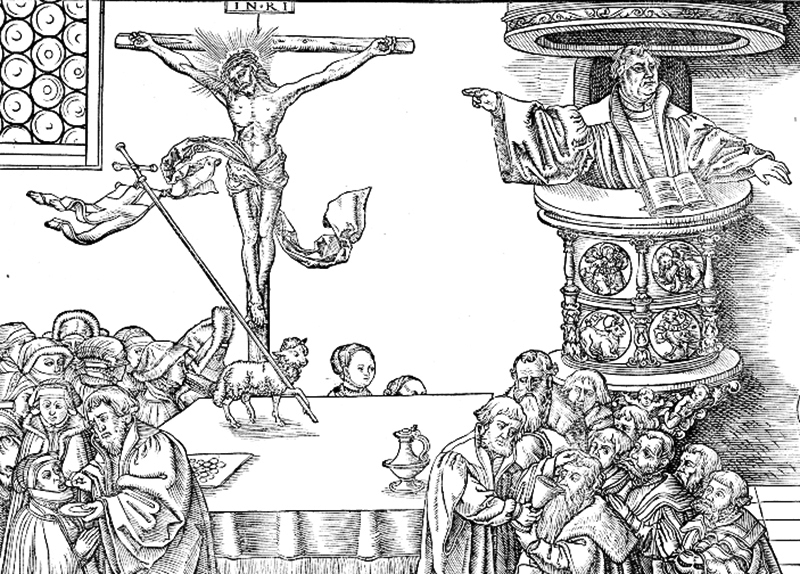
by Matthew C. Harrison
The Lutheran Reformation was a move from uncertainty in ourselves to absolute certainty in Christ.
As a lecturer of the Bible, Martin Luther spent years studying and teaching the texts of Scripture. His growing knowledge of Hebrew and Greek led him deeper and deeper into Scripture and a clear understanding of the certainty of the Gospel. He passed through the influence of medieval scholasticism and its uncertain system of meritorious participation. German mysticism shaped him for a time. His study of Augustine deeply influenced him. Throughout, a theology of humility marked him. The great “tower experience,” which resulted from his meditation on Romans 1:16-17—the Gospel is the power of God to salvation, received by faith alone—was the finale in a series of smaller events and insights that resulted in Luther’s understanding and proclamation of the full and free Gospel.
The full Gospel and its implications were not clear to Luther when he posted the 95 Theses on October 31, 1517. He hadn’t ruled out indulgences entirely but complained intensely about their misuse. He didn’t yet know how dependent church finances were on the indulgence trade. Luther was also unaware that Pope Leo X had allowed Albert of Mainz to hold a second archbishopric after Albert pledged a significant contribution of Fugger money toward the building of St. Peter’s Basilica, to be paid by the work of the greatest fundraiser of the day, the indulgence seller, John Tetzel.
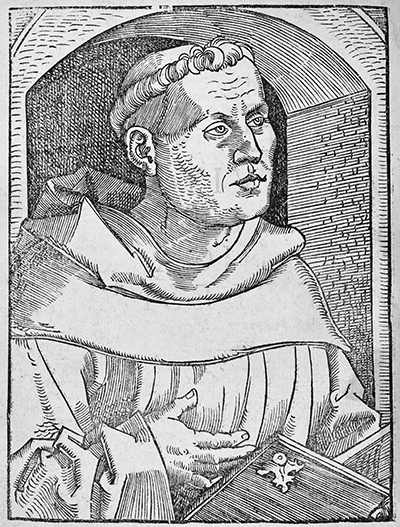
The posting of the 95 Theses caused a storm. They were immediately translated, printed, and spread throughout Europe in a matter of weeks. The opposition to Luther and his theses were harsh and swift. Luther continued teaching on the Scriptures, and his lectures on both Paul and Hebrews pressed him to greater and greater clarity.
Luther’s “tower experience” likely occurred in April 1518. The final point in his formulation and understanding of the Reformation message came when he moved past Augustine’s doctrine of justification to imputation. The righteousness by which we are acceptable to God and certain of eternal approval is the righteousness of Christ credited to us and received only by faith. “From faith to faith,” wrote St. Paul in Romans 1:17. When Luther read these words in light of this understanding, he felt as though the gates of heaven had been opened. If God’s approval depends upon anything in me, it cannot be certain. If it depends upon the life and full satisfactory atonement of the God man Jesus Christ, then I cannot but be certain.
Later, in 1530, Article IV of the Augsburg Confession expressed the certainty of the doctrine of justification as well as any human words could:
[Our churches] teach that men cannot be justified before God by their own strength, merits, or works, but are freely justified for Christ’s sake, through faith, when they believe that they are received into favour, and that their sins are forgiven for Christ’s sake, who, by His death, has made satisfaction for our sins. This faith God imputes for righteousness in His sight. (Romans 3 and 4).
Our heavenly Father is pleased when a Christian is absolutely certain of His love and forgiveness now, certain of eternal life with Him upon death, and certain of a bodily resurrection like Christ’s own at the Last Day.
In the face of all the suffering and travails happening to him at the hands of people and of God, Job confesses with absolute certainty (19:23-27):
“Oh that my words were written! Oh that they were inscribed in a book! Oh that with an iron pen and lead they were engraved in the rock forever! For I know that my Redeemer lives, and at the last he will stand upon the earth. And after my skin has been thus destroyed, yet in my flesh I shall see God, whom I shall see for myself, and my eyes shall behold, and not another. My heart faints within me!”
I want to encourage you to be certain. Christ’s Gospel is absolutely certain. Christ was slain from the foundation of the world for you. He knows who you are. He knows your name. He knows the town you work in. He knows your vocation; He’s given it to you. He knows your family. He knows every difficulty you face. He knows your weaknesses. And He’s placed you where He’s placed you. He’s given you sacred vocations to fulfill, service to the Church and your community. He knows you’re imperfect. That’s why He’s perfect.

You have the certain Ten Commandments. They are absolutely clear. You shall not. They damn us all. That’s why we in the Church should not spend the majority of our time looking outside and condemning the culture, condemning the people around us, condemning others. The Church needs to speak the Law to ourselves. When Jesus said, “You brood of vipers” (Matthew 12:34), He was talking to the religious people. “You brood of vipers” applies to all of us. You and I commit sins, and not just occasionally. Even when our hands and our feet do the right thing, when our mouths say the right thing, our minds are full of absolute stench and filth. We hate. We’re envious. We’re prideful. We’re unforgiving. Think of the person in your family who’s the black sheep, or how your heart is inclined negatively toward people who’ve harmed you in the past. Scripture teaches that if you hate somebody, that’s like murder (1 John 3:15). The Law damns us completely (Romans 3:21). And it’s absolutely clear. It gives us a clear path for living. It’s certain.
The Law is given to all. Its chief purpose is to drive us to repentance. It is given, says St. Paul, “that every mouth may be stopped, and the whole world may be held accountable to God. For by works of the Law no human being will be justified in his sight, since through the Law comes knowledge of sin” (Romans 3:19–20). As the hymnwriter Paul Speratus says, “The Law is but a mirror bright / To bring the inbred sin to light” (LSB555:3). Christ came for sinners. You are one. There’s no gray here. “No one is righteous. No, not one” (Romans 3:9). The Law condemns because we do not meet its demands. The Law drives us to Jesus, who met all of its demands (Romans 5:19) and died to put its punishments to death (5:9).
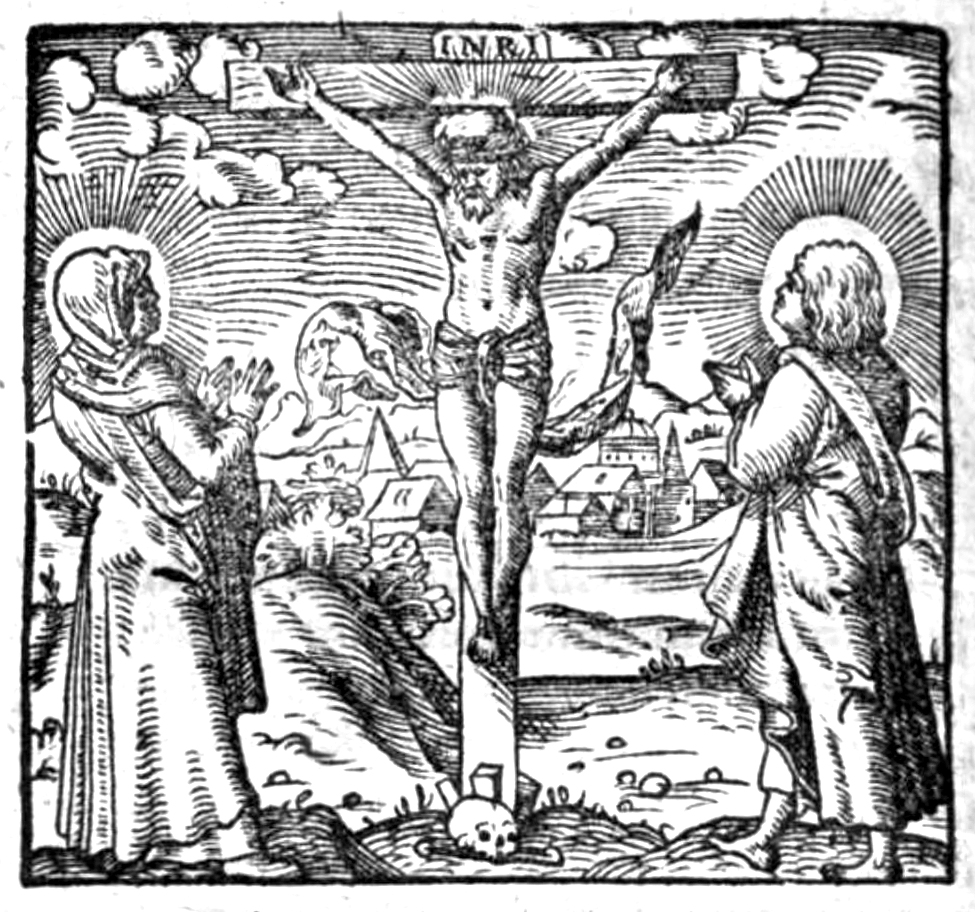
The Creed is absolutely certain. The First Article (Creation) teaches that this world and all its inhabitants are God’s precious creation and creatures. It is certain. Our heavenly Father is the source of all that we are, have, and enjoy.
The Second Article (Redemption) teaches with all biblical certainty that Christ “has redeemed me… not with gold or silver, but with His holy, precious blood and with His innocent suffering and death” (SC, Second Article; see 1 Peter 1:19). It is absolutely certain that Jesus really did die. He suffered under Pontius Pilate, was crucified, died, and was buried. He descended into hell, where He proclaimed victory. Jesus was raised from the dead and ascended into heaven to sit at the right hand of God the Father Almighty. The deed was done 2,000 years ago. The Gospel is yours. It’s absolutely certain. Why did the Apostles all willingly die violent deaths? Because they knew Jesus rose from the grave. They had seen Him themselves. They were His witnesses. They were compelled to preach (1 Corinthians 9:16)! It’s certain. It’s absolutely certain.
The Third Article (Sanctification) teaches, “I believe that I cannot… believe in Jesus Christ, my Lord, or come to Him; but the Holy Spirit has called me by the Gospel” (SC, Third Article). My salvation is certain because it’s not won by me, not worked by me, not decided by me (John 15:16), not preserved by me. It’s all God’s working, from beginning to end. It’s an “inheritance that is imperishable, undefiled, and unfading, kept in heaven for you, who by God’s power are being guarded through faith” (1 Peter 1:4–5).
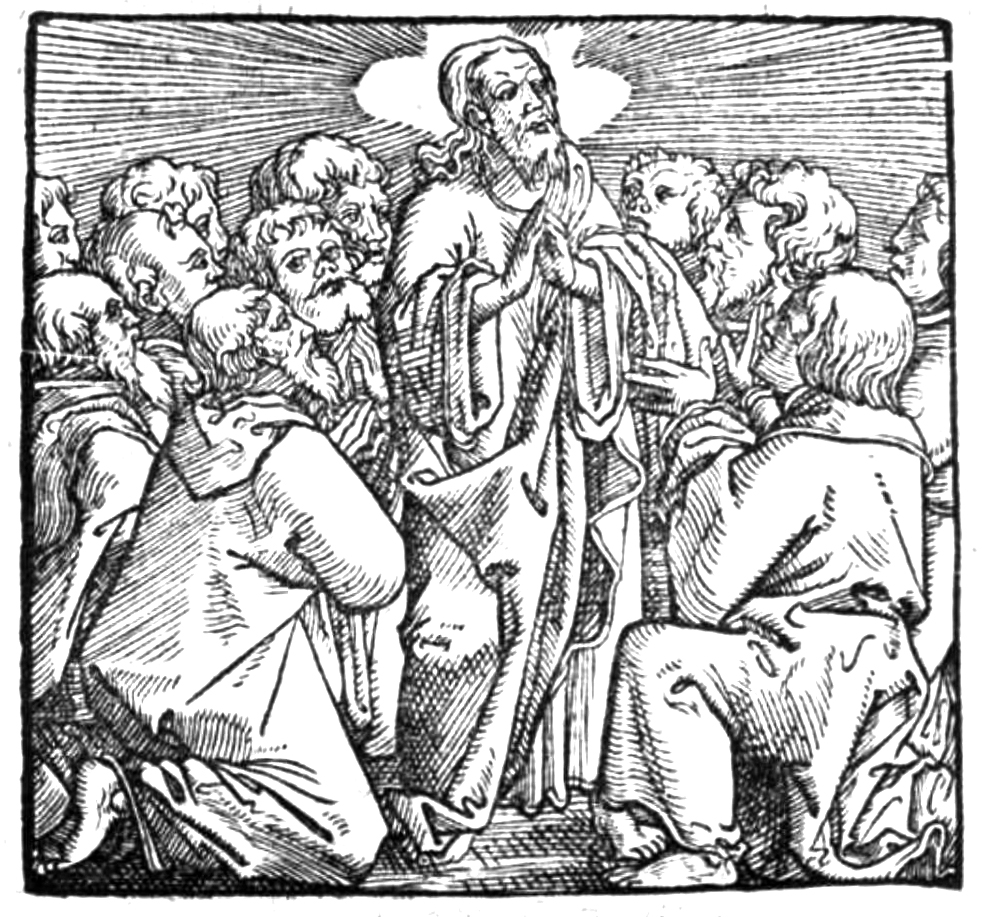
The Lord’s Prayer is absolutely certain. You are given the Lord’s very words. Jesus promised His apostles, “Whatever you ask in My name, this I will do” (John 14:13). Jesus invites us to pray to Him: “Come to Me, all who labour and are heavy laden, and I will give you rest” (Matthew 11:28). Jesus teaches us the very words to pray in the Lord’s Prayer: “Our Father who art in heaven” (See Matthew 6:9–13; Luke 11:2–4). “With these words God tenderly invites us to believe that He is our true Father and that we are His true children, so that with all boldness and confidence [certainty!] we may ask Him as dear children ask their dear father” (SC, Lord’s Prayer Introduction). So Jesus says, “This is my Father, and now I want you to call Him Father.” Isn’t that the most marvelous thing? These petitions are what Jesus wants you to pray. And He promises that, for His sake, your Father hears them and answers them for you, for your good. It’s certain.
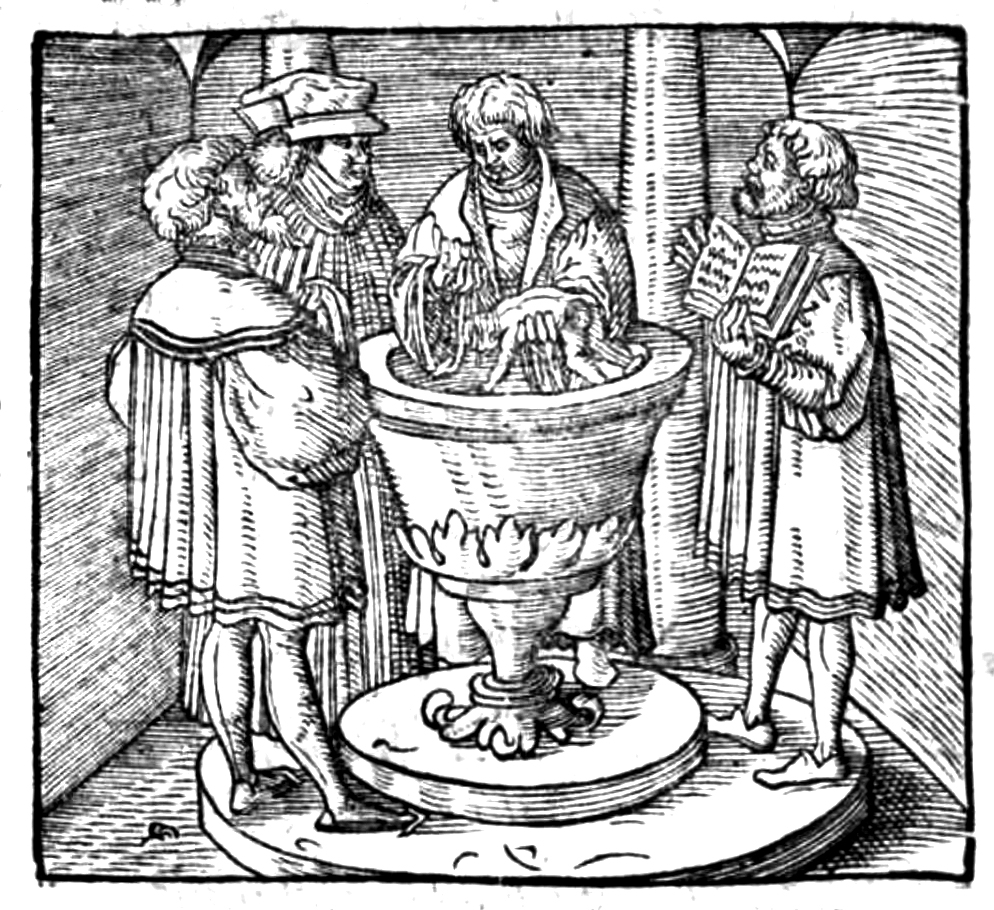
Baptism is absolutely certain. By being baptized Himself, Jesus put Himself into Baptism. Jesus mandated Baptism, saying that through Baptism disciples are made of all nations (Matthew 28:19). He also taught, “Whoever believes and is baptized will be saved” (Mark 16:16). The apostles repeatedly taught that Baptism is a saving act, for it connects us with Christ’s death, burial, and resurrection (Colossians 2:6–15; Romans 6:3–5). “He saved us through the washing of rebirth and renewal by the Holy Spirit” (SC, Baptism 3; see Titus 3:5–8). Baptism is the forgiveness of sins. Baptism is justification. Baptism is the Gospel. It’s certain.
The Bible says we are buried with Christ in Baptism (Romans 6:3–5). Baptism connects us with Jesus (Colossians 2:12). Baptism is not a symbol; it truly forgives sins and grants the Holy Spirit (Acts 2:38). “Baptism now saves you” (1 Peter 3:21). It delivers the goods. You are forgiven. Baptism renders your conscience clean (Hebrews 10:22). Jesus is for sinners, only for sinners. And you happen to be one. There’s a nice fit there. You’d better always be a sinner because Jesus comes for sinners. Luther once wrote in a letter, “Christ dwells only in sinners” (LW 48:13). And so He does. Absolutely certain.
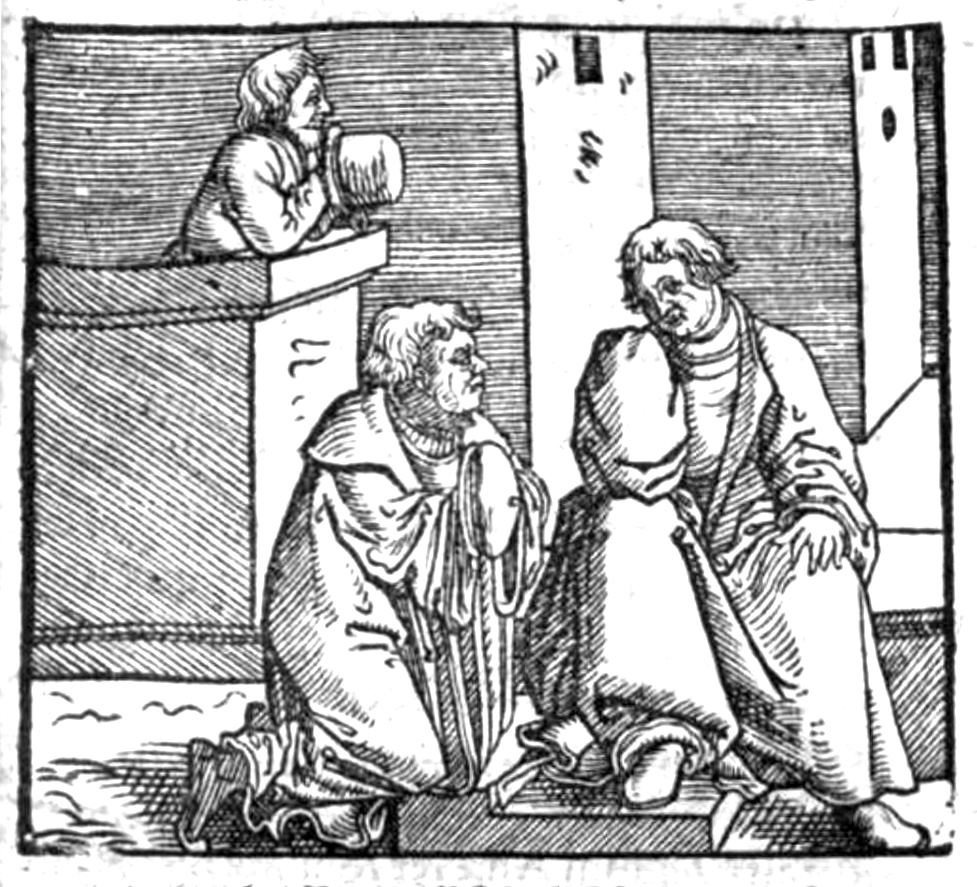
You are absolved. Your pastor absolves you. Your sins are forgiven. Why confess our sins to a pastor privately and at the beginning of the Divine Service? Because Jesus mandated it. “He breathed on [His disciples] and said to them… ‘If you forgive the sins of any, they are forgiven them’” (John 20:22–23). Jesus said it. Jesus gave it. Faith receives it. It is the Gospel. It is certain. In fact, “this is just as valid and certain, even in heaven, as if Christ our dear Lord dealt with us Himself” (SC, Confession). This forgiveness is also meant to open our lips to speak the Gospel of forgiveness to those in our lives.
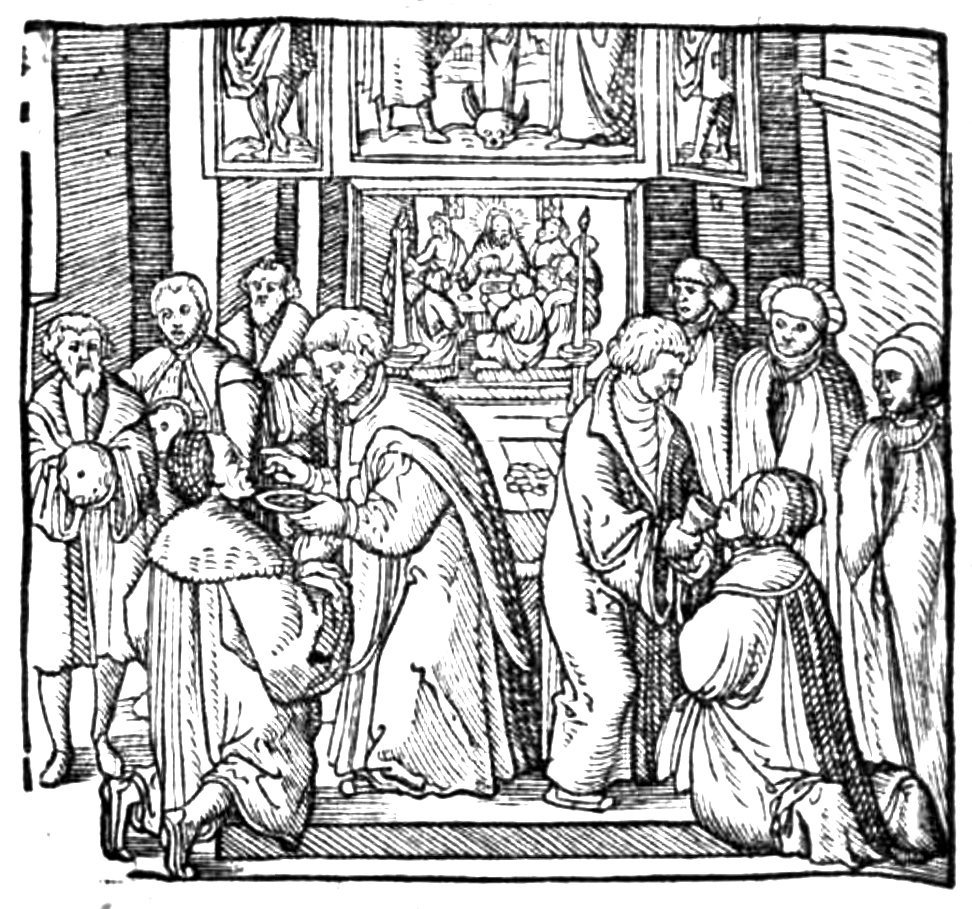
And the Sacrament is yours. The very Body and Blood of Christ is yours. It’s absolutely certain. It’s His very Body and Blood, given and shed for you. For what? The forgiveness of sins. Jesus says, “Take, eat; this is My body… Drink of it, all of you; this cup is… My blood, which is shed for you for the forgiveness of sins” (SC, Sacrament of the Altar). Those who assert that “this is My body” actually means “this is not really My body” forever have the burden of explaining why Jesus did not mean what He said. Jesus’ words are clear and certain. We receive the gift believing Christ’s words. And it is absolutely certain. “Whoever feeds on My flesh and drinks My blood has eternal life, and I will raise him up on the last day” (John 6:54).
The Lord gives His Gospel to us in manifold ways. Salvation was earned on the cross and is distributed by the proclaimed Word of the Gospel, Absolution, Baptism, and the Lord’s Supper. That certainty is more than we need in these crazy times to hold our heads high, say, “Come, Lord Jesus,” and “come what may.” I know that my Redeemer lives (Job 19:25). All this He has given so that I may be absolutely certain that I am His baptized child now, and I shall enjoy the resurrection of my flesh, with Him and all the saints, into eternity (1 Corinthians 15).
This certainty is confessed in the Smalcald Articles, III.IV:
We will now return to the Gospel, which does not give us counsel and aid against sin in only one way. God is superabundantly generous in His grace. First, through the spoken Word, by which the forgiveness of sins is preached in the whole world (Luke 24:45-47). This is the peculiar office of the Gospel. Second, through Baptism. Third, through the holy Sacrament of the Altar. Fourth, through the Power of the Keys. Also through the mutual conversation and consolation of brethren, “Where two or three are gathered” (Matthew 18:20), and other such verses (especially Romans 1:12).
The Lutheran Reformation is still all about certainty in Christ.
——————–
Rev. Dr. Matthew C. Harrison is President of The Lutheran Church—Missouri Synod and a member of the International Lutheran Council’s Board of Directors.
